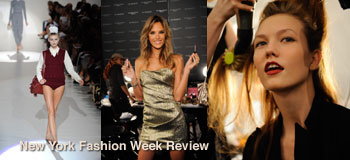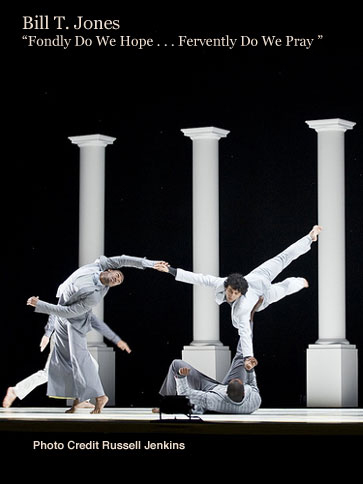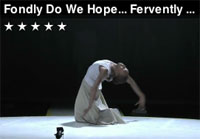“You better understand proportions and lines and contours. We are artists and the human body is our canvas.”—Dr. Andrew Ordon
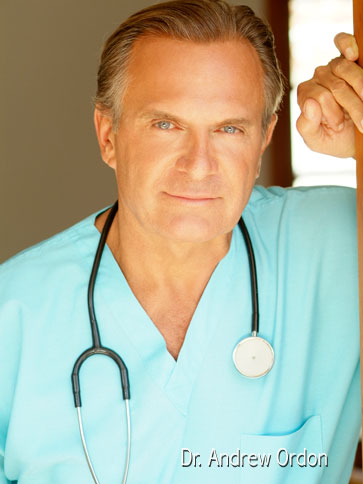 Dr. Andrew Ordon is the co-host of the popular television show, “The Doctors”. He was handpicked by Dr. Phil McGraw, and works alongside his prestigious colleagues of varying fields, Dr. Travis Stork, Dr. Jim Sears, and Dr. Lisa Masterson. He affects the lives of so many people on a daily basis with their extensive medical knowledge. It’s no question that he was the obvious choice for the Emmy-nominated show now in its second season.
Dr. Andrew Ordon is the co-host of the popular television show, “The Doctors”. He was handpicked by Dr. Phil McGraw, and works alongside his prestigious colleagues of varying fields, Dr. Travis Stork, Dr. Jim Sears, and Dr. Lisa Masterson. He affects the lives of so many people on a daily basis with their extensive medical knowledge. It’s no question that he was the obvious choice for the Emmy-nominated show now in its second season.
Dr. Ordon is the author of Revealing the New You, A guide to Plastic Surgery, and Everything You Always Wanted to Know About Plastic Surgery. He contributed to one of the best known textbooks in the field of plastic surgery, entitled Facial Aesthetic Plastic Surgery. He also has an extensive list of papers, presentations, and honors to his credit. He has been a featured guest on major television shows, including 20/20, Entertainment Tonight, Inside Hollywood, BBC, 48 Hours, Phil Donahue, NBC News, ABC News, and Sally Jesse Raphael, to name a few. He has been quoted in articles in many of the top beauty magazines such as Allure, Mademoiselle, Redbook, Glamour, and Prevention.
How did you get involved with the show?
This is a spinoff of the DR Phil Show. DR Phil did it on the psychological side, and we did it on the medical side. We have to give credit to his son Jay McGraw, who really came up with the concept; and he is the executive producer. So it’s basically a talk show format for doctors, different specialties, talking about medicine and health topics.
Let’s talk about your specialty.
I’m a plastic surgeon. I guess I brought the right thing to the table. I was in the right place at the right time and they picked me to be the plastic surgeon on the show, and what is a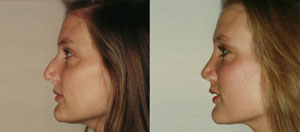 plastic surgeon? I think a lot of people out there have a misconception that we’re just beauty doctors doing facelifts and noses all day long. We’re reconstructive surgeons. We’re trained in doing far more complex operations, cleft lips and pallets, burns, hands, facial trauma, so I’m the real deal. I’m a board certified plastic surgeon, also a board certified head/neck surgeon with seven years of training after medical school to be the specialist that I am.
plastic surgeon? I think a lot of people out there have a misconception that we’re just beauty doctors doing facelifts and noses all day long. We’re reconstructive surgeons. We’re trained in doing far more complex operations, cleft lips and pallets, burns, hands, facial trauma, so I’m the real deal. I’m a board certified plastic surgeon, also a board certified head/neck surgeon with seven years of training after medical school to be the specialist that I am.
What made you decide that you wanted to go into plastic surgery?
I knew you were going to ask me that question! Why did you become a plastic surgeon? That’s a very popular question. You know as medical students, we rotate through each one of the disciplines. We do some pediatrics, we do some psychiatry, we do some OBGYN. You feel what fits for you. It has to do with your personality. It has to do with . . . really what you want to do. And what I do is not as much saving lives, although sometimes I do that. It’s more about improving the quality of life. And the other thing is I knew I wanted to be a surgeon. I consider myself artistic, and I don’t think there’s any question plastic surgery is the one specialty that mixes art and medicine.
Do you feel that being on the show has broadened the scope for plastic surgery for you?
No question. Being on the TV show “The Doctors” has made me a better doctor. Just because I have to prepare for all of these shows that deal with a lot of medical topics within my field and outside of my field. So it’s like studying for midterms before every show to learn the latest. As part of the show we try to be cutting edge—what’s new, what’s the latest medicine? So, I’m staying on top of that. The show has made me a better doctor.
What are some of the questions you get asked on the show?
One of the more common questions is, “Hey, plastic surgery . . . I don’t think I’m ready to go 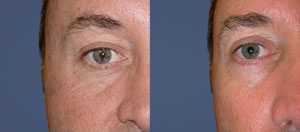 under the knife. Surgery isn’t for me. What other things can I do?” It’s always a recurrent theme on the show; nonsurgical treatments starting with basic skincare, then going on to fillers, injectables, laser treatments, as well as some of the other non-invasive treatments.
under the knife. Surgery isn’t for me. What other things can I do?” It’s always a recurrent theme on the show; nonsurgical treatments starting with basic skincare, then going on to fillers, injectables, laser treatments, as well as some of the other non-invasive treatments.
As a plastic surgeon, if you see someone, do you automatically start calculating what kind of work they need on their face?
I would have to say yes. And it’s not like I would ever go up to somebody and say, “Hey you know what? I need to fix that nose.” Some doctors do that, which I really don’t think is right. But my eye is trained. I look at facial features. I look at the balance of certain facial features. I look at bodies. My eye is trained to do that. Maybe a decorator will walk into a room and the first thing they’ll look at are window treatments. My eye is trained to look at faces and bodies.
So it’s not like you can just turn it off. What makes a good candidate for plastic surgery?
As surgeons we have to know when to operate and when not to operate. It starts with a patient who’s doing plastic surgery for the right reasons. Although you’re changing physical things, the real operation is up here in your head. It’s just feeling better about yourself. It’s an emotional treatment as well as a physical treatment. The patient has to have realistic goals, meaning wanting a change that fits with the rest of their body that is natural, not creating something that is freakish or artificial, not trying to totally change the person that they are. I think those are all red flag reasons not to do plastic surgery.
What advice would you give someone who’s seeking plastic surgery? Like say you have a typical woman coming in. Maybe she wants breast augmentation or rhinoplasty. Are there things that she needs to do first?
For any person considering plastic surgery there are a couple of things they would want to go through on the checklist. And I touched on it briefly. Make sure you’re doing it for the right reasons, have realistic expectations, don’t expect it to change your life, don’t go looking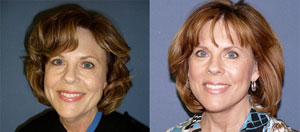 for changes that are just so over the top that it’s going to change who you are. And then do your homework. Make sure you ask all the questions before surgery. Make sure your surgeon is board certified by the American Board of Plastic Surgery, that he does a lot of the procedures that you are interested in having, that he has hospital privileges in a hospital and has the privileges to do all of those procedures.
for changes that are just so over the top that it’s going to change who you are. And then do your homework. Make sure you ask all the questions before surgery. Make sure your surgeon is board certified by the American Board of Plastic Surgery, that he does a lot of the procedures that you are interested in having, that he has hospital privileges in a hospital and has the privileges to do all of those procedures.
What would you say are realistic price points? Are there general prices for certain surgeries?
Price points do vary geographically from coast to coast. Typically in larger city areas, prices may be a little bit higher. In an area where rents are higher, you have to pay employees 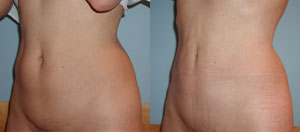 more. These all reflect what a surgeon’s fees will be . . . higher fees in New York, San Francisco, and Los Angeles, that’s pretty normal. With what’s happening in medicine, though, a lot of non-plastic surgeons are jumping on the cosmetic surgery wagon. And that’s where the consumer has to be really careful. Anybody can call themselves a cosmetic surgeon and I don’t think the public realizes there’s a difference between a doctor who does cosmetic surgery and a true plastic surgeon. You’ll see it in the paper: “Get your breast done for $3,999.” Well, I can’t do your breasts for $3,999. Somebody is doing that, and they may not have the same qualifications that I do. To charge that low amount of money, they have to be cutting corners. As a consumer, don’t just look at price because it is your body. Potentially, it is your life.
more. These all reflect what a surgeon’s fees will be . . . higher fees in New York, San Francisco, and Los Angeles, that’s pretty normal. With what’s happening in medicine, though, a lot of non-plastic surgeons are jumping on the cosmetic surgery wagon. And that’s where the consumer has to be really careful. Anybody can call themselves a cosmetic surgeon and I don’t think the public realizes there’s a difference between a doctor who does cosmetic surgery and a true plastic surgeon. You’ll see it in the paper: “Get your breast done for $3,999.” Well, I can’t do your breasts for $3,999. Somebody is doing that, and they may not have the same qualifications that I do. To charge that low amount of money, they have to be cutting corners. As a consumer, don’t just look at price because it is your body. Potentially, it is your life.
Has there ever been a question that you couldn’t answer on the show?
This is my 30th year doing plastic surgery. I’ve been asked some pretty wild ones, some pretty strange ones. I’m not going to say that I’ve heard it all. Because there’s always something different that’s going to come up. But what I’ve seen on the show, I’ve been able to handle pretty well.
You know it’s a really good dynamic of personalities on the show. How would you gage your overall experience on “The Doctors”?
I’m loving the experience. I have a real passion for what I do as a plastic surgeon. That’s the role I play on TV, being myself as the plastic surgeon. I try to bring that same passion to the TV show and even go to the next level because it is TV and you always have to keep that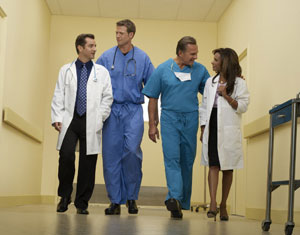 energy up and you have to project even more and you have to sustain it. It’s been a challenge and you have to sustain it.
energy up and you have to project even more and you have to sustain it. It’s been a challenge and you have to sustain it.
I kind of liken you and your skill to an artist. Wouldn’t you almost have to be?
You better understand proportions and lines and contours. We are artists and the human body is our canvas. It is an artistic eye. You either have that or you don’t. It’s actually doing the procedure technically to achieve that goal.
Highest High
The reconstructive surgeries that I’ve done on kids—cleft lips and pallets, congenital deformities in children—I gave them a second chance that really will last them the rest of their lives. But I think the true highest high was the unveiling of my ultimate makeover on the show. This was a woman I did everything: face, nose, chin, body. She was a self-admitted ugly duckling. She wouldn’t go out of the house. She wouldn’t take pictures. I did this ultimate makeover and we had the reveal on the show. It highlighted everything I do, and doing it in that setting was the single biggest event I had as a plastic surgeon.
Have you had any disappointments in surgery?
Surgery is not an exact science. Complications do occur. You can’t always predict how somebody is going to heal. Having to go back and do things a second time is a part of all plastic surgery. There are complications and there are revisions.
Are there any particular medical conditions that if someone wanted to get surgery, you wouldn’t allow it?
Most plastic surgery is elective surgery, meaning it’s not life-threatening. You only do it 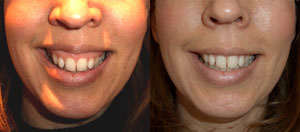 when everything is the right conditions. You have to be healthy and cleared by your doctor: no healing problems; no clotting problems; diabetics have a greater risk for infection and poor healing; high blood pressure can affect surgical outcomes; and smoking . . . that’s a big one. Some surgeons will not do a facelift on a smoker because it does affect the blood vessels, which can affect the healing. As a consumer, if you’re at risk for any of those reasons, you should think twice.
when everything is the right conditions. You have to be healthy and cleared by your doctor: no healing problems; no clotting problems; diabetics have a greater risk for infection and poor healing; high blood pressure can affect surgical outcomes; and smoking . . . that’s a big one. Some surgeons will not do a facelift on a smoker because it does affect the blood vessels, which can affect the healing. As a consumer, if you’re at risk for any of those reasons, you should think twice.
Tell me about the cleft lip healings and your philanthropic endeavors.
So I’m in this Beverly Hills office with a great group of doctors. We all have our niche. Nasal specialist, eye specialist, and together as a group, we’ve formed a charitable foundation. It’s called Surgical Friends Foundation. It’s us as a group giving back our skills as reconstructive plastic surgeons and people that wouldn’t otherwise have the opportunity. We do it here in our Beverly Hills office. We donate the office as well. Or we go to certain areas and actually do the surgeries. We have a couple of trips on the books going to St. Vincent the Caribbean, Cambodia next spring, so it’s gotten off the ground. We’ve already done a number of reconstructive cases and it’s all about giving back.
Is there any one specific case where you’ve helped a child you’d like to share?
I can think of one particular case. This was an orphan, a very sweet young lady. She was from South Korea, who was brought in by a church group. She didn’t have the opportunity to get this done in her country. We did a cleft lip and cleft pallet repair. She stayed a month during the healing with people through her church, then went home. She didn’t speak any English and where she came from was so different from the environment she was put in, and we were able to fix her problem, give her a new lease on life and then send her home.
You’re literally changing lives.
We recently did a case where somebody actually had bitten off the end of somebody’s nose. This person didn’t want to leave his house. He became extremely depressed. Giving him back this nose gave him back his life.
To learn more about the foundation, visit www.Surgicalfriends.org.
Also visit Dr Ordon’s website at www.drordon.com.
Get daily information about “The Doctors” at www.thedoctorstv.com.
Interviewed by Kaylene Peoples
 to go to the United Kingdom, chances are that England is on that long list of places you want to visit. Here are a number of places and events that you could visit during your stay in England.
to go to the United Kingdom, chances are that England is on that long list of places you want to visit. Here are a number of places and events that you could visit during your stay in England. It has fascinated archeologists all over the world, because these rocks have been standing there in a circular formation for the longest time. The puzzling thing is how ancient tribesmen got these large, heavy rocks there because these particular stones can be found at a location remote from Wilshire. They have also, for the longest time, been trying to figure out what this monument was used for.
It has fascinated archeologists all over the world, because these rocks have been standing there in a circular formation for the longest time. The puzzling thing is how ancient tribesmen got these large, heavy rocks there because these particular stones can be found at a location remote from Wilshire. They have also, for the longest time, been trying to figure out what this monument was used for. from slim to none, you can take a tour in this captivating man made marvel. It is one of the places where the British monarch stays from time to time, and it has been standing since the time of William the Conqueror. Since that time, it has gone through a few changes, depending on the taste of the ruling monarch of the time. Upon arriving in Windsor, the sight of the castle itself can be mind blowing when you start the tour.
from slim to none, you can take a tour in this captivating man made marvel. It is one of the places where the British monarch stays from time to time, and it has been standing since the time of William the Conqueror. Since that time, it has gone through a few changes, depending on the taste of the ruling monarch of the time. Upon arriving in Windsor, the sight of the castle itself can be mind blowing when you start the tour.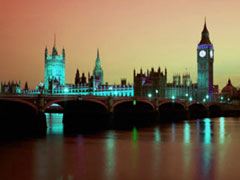 CITY OF LONDON
CITY OF LONDON